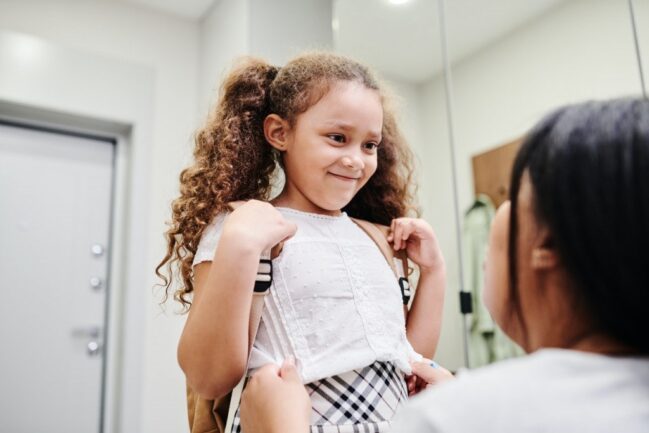Blog
How to help a child with separation anxiety at school
October 1, 2021
2 minutes, 54 seconds
This article explores what seperation anxiety is and how to help a child who is experiencing it.

We have all been living in far from certain times. The Covid-19 pandemic saw our lives turned upside down, often studying and working from home, with minimal interaction with others.
As the world slowly returns to normal and your little ones have returned to school, there is an increased risk of separation anxiety amongst children, especially younger children.
Here are our top tips for helping a child with separation anxiety at school.
What is separation anxiety?
Separation anxiety is common in children, causing them to experience feelings of anxiety when separated from their parents or a loved one.
As the pandemic limited our social interactions, many young children now have intense feelings of separation anxiety, displaying hallmark signs such as tantrums, clinginess, and crying when separated from their parents or caregivers.
If separation anxiety isn’t nipped in the bud, it can have a huge impact on a child’s development, especially as they progress in their education. It can also have an impact on many day-to-day activities and cause long term socialisation issues if not addressed in the right way.
So, what are the symptoms of separation anxiety disorder?
It’s normal for children to feel worried about being separated from their loved ones in certain situations, however, it’s not normal for them to experience these feelings constantly and intensely.
Separation anxiety can also ignite feelings that something terrible will happen to a loved one when they’re apart. This level of worry can lead to many debilitating symptoms, including the fear of going to school, a fear of going outside, and the reluctance to integrate with others in social situations.
Many children also experience physical symptoms such as sickness, stomach pains and headaches.
How to help a child with separation anxiety
The good news is that there are lots of ways that you can help a child with separation anxiety, including:
Practice separation regularly
A great way to combat separation anxiety is to practice separation regularly. Leave your child with a trusted family member or friend for brief periods of time. Each time you do it, leave them for a little bit longer.
Always say goodbye
Goodbye rituals are incredibly reassuring, and a simple kiss goodbye or wave can help your child understand that you are leaving but will be back.
Keep your promises
When trying to help a child with separation anxiety, make a conscious effort to always follow through on promises. This will help your child to handle the separation knowing that you will be back when you said you will.
For your child to develop the confidence that they can handle separation, it is important you return at the time you promised.
Don’t make a fuss
When it does come to leaving your child at school or with a loved one, try not to make a fuss! Making it a bigger deal than what it is will signal to your child that they have something to fret about.
Familiar surroundings
When you do leave your child, try where possible to ensure that they are in familiar surroundings. For example, if you are getting a loved one to take care of them, ask them to come to your home. Giving your child a familiar object when they are not inside the home can also help.
If you're interested in training to become a counsellor to help support those dealing with separation anxiety and other mental health issues, then see our counselling courses or request a prospectus today.